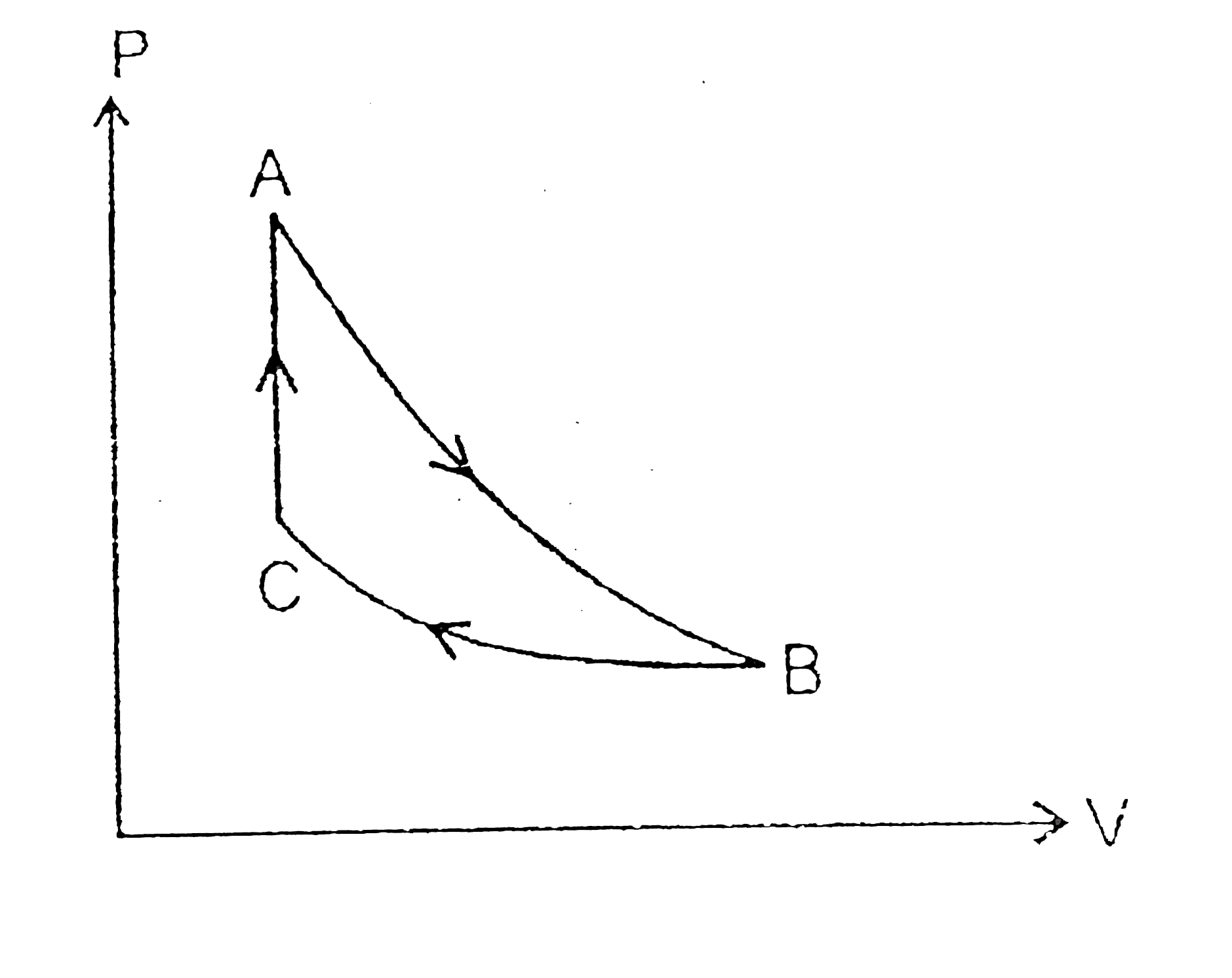
An ideal gas undergoes a cyclic process, in which one process is isochoric, one process is isothermal and one process is adiabatic. During the isothermal process, 40 J heat is released by the gas, and during the isochoric process, 80 J heat is absorbed by the gas. if work done by the gas during adiabatic process is W1 and during isothermal process is W2 then the magnitude of W1W2 will be equal to:
Video Solution
Text Solution
The correct Answer is:B
For isothermal process
W2=QBC=−40J
for complete cycle
Qcycle=Wcycle
−40+80+0=−40+0+W
W1=80J
|
Updated on:21/07/2023
Topper's Solved these Questions
- BOOK - RESONANCECHAPTER - TEST PAPERSEXERCISE - PT-0130videos
TEST PAPERS
- BOOK - RESONANCECHAPTER - TEST PAPERSEXERCISE - Pt-0230videos
TEST PAPERS
- BOOK - RESONANCECHAPTER - TEST PAPERSEXERCISE - PART - II PHYSICS107videos
TEST PAPERS
- BOOK - RESONANCECHAPTER - SIMPLE HARMONIC MOTION EXERCISE - Advanced Level Problems13videos
SIMPLE HARMONIC MOTION
- BOOK - RESONANCECHAPTER - TEST SERIESEXERCISE - PHYSICS127videos
TEST SERIES
Similar Questions
Knowledge Check
- Question 1 - Select One or More
The work done by 1 mole of ideal gas during an adiabatic process is (are ) given by :
AW=Cv(Tf−Ti)BW=PfVfγ−1[1+PfPi]γ−1CW=PfVfγ−1⎡⎢⎣1−(PiPf)γ−1γ⎤⎥⎦DW=PfVf−PiViγ−1 - Question 2 - Select One
An ideal gas system undergoes an isothermal process, then the work done during the process is
AnRTln(V2V1)BnRTln(V1V2)C2nRTln(V2V1)D2nRTln(V1V2) - Question 3 - Select One
An ideal gas system undergoes an isothermal process, then the work done during the process is
AnRTInV2V1BnRTInV1V2C2nRTInV2V1D2nRTInV1V2
When the gas is ideal and process is isothermal, then
View SolutionAn ideal gas undergoes isothermal expansion at constant pressure . During the process.
View SolutionIn an isothermal process for ideal gas.
View SolutionFor an ideal gas, in an isothermal process
View SolutionThe specific heat of a gas in an isothermal process is
View Solution
